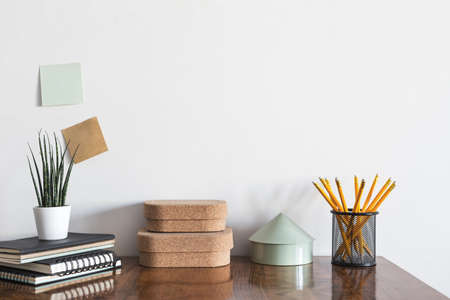1. Ignoring the Importance of Clear Entryways
In Feng Shui, the main entryway of your home is considered the “mouth of chi,” where positive energy (or “chi”) enters your space. But in many American homes, it’s common for the front door to be overlooked, blocked by clutter, or even unused altogether. Instead, families often use side doors, back doors, or especially the garage as their main way in and out. While this may be convenient, it can actually disrupt the natural flow of energy and impact both the atmosphere and the daily life inside your home.
Why a Clear Entryway Matters
A cluttered or blocked front door can stop good energy from coming in and even create feelings of stress or chaos as you walk into your house. According to Feng Shui principles, a welcoming and open entryway allows positive vibes to flow in freely, creating a more peaceful and inviting environment.
Common Issues with Entryways in American Homes
| Common Mistake | Effect on Energy & Daily Life | Easy Fixes |
|---|---|---|
| Using garage/back door as main entrance | Main entry loses its energy-drawing purpose; guests may feel unwelcome | Add a welcome mat, use front door more regularly |
| Piling up shoes, bags, or packages near front door | Blocks energy flow; creates mess and stress when entering/exiting | Install storage solutions; keep area tidy |
| No clear path to front door due to landscaping or decorations | Makes home less inviting; chi is confused about how to enter | Trim bushes, remove obstacles, add clear walkway lighting |
Tips for Improving Your Entryway’s Feng Shui
- Keep the area around your front door clean and free of clutter.
- Add bright lighting to make the entrance feel warm and inviting.
- Use plants or flowers to bring positive energy and life to the space.
- If you usually enter through another door, try using your formal entryway more often—even just for special occasions or guests.
- Hang something attractive on or near your front door, like a wreath or piece of art, to draw positive attention.
By paying attention to your home’s main entrance and keeping it open and welcoming, you’ll invite better energy into your space—something that benefits everyone who lives there.
2. Misplacing Mirrors and Their Effects
Mirrors are a popular element in American home décor, often used to make spaces look larger or brighter. However, in Feng Shui, where you place a mirror can greatly affect the energy flow (or “chi”) in your home. Here are some of the most common mistakes Americans make with mirrors—and why these placements might not be ideal from a Feng Shui perspective.
Common Mirror Placement Mistakes
| Mistake | Why It’s Popular | Feng Shui Perspective |
|---|---|---|
| Mirror directly opposite the front door | To check appearance when leaving or arriving; to reflect light into entryway | Bounces good energy (chi) right back out the door, reducing positive vibes entering your home |
| Large mirrors in bedrooms facing the bed | Makes rooms feel bigger; trendy design choice | Can disrupt sleep and create restlessness, as mirrors are thought to double energy and activity in a space meant for rest |
| Mirrors reflecting clutter or sharp corners | Unintended result of trying to fill wall space or increase brightness | Magnifies negative energy by doubling what is reflected, such as mess or harsh angles (“poison arrows”) |
Why Mirror Placement Matters in Feng Shui
According to Feng Shui, mirrors don’t just reflect physical objects—they also bounce energy around your home. Placing a mirror across from your front door may seem practical, but it can cause all the positive chi that enters to rush straight back out. Similarly, having mirrors face your bed can leave you feeling tired or unsettled because they “activate” the space instead of allowing it to remain peaceful.
Tips for Better Mirror Placement
- Avoid placing mirrors directly opposite doors: Instead, position them where they can reflect something beautiful or calming, like artwork or a nice view.
- Keep mirrors out of direct line with beds: If you must have one in your bedroom, angle it so it doesn’t face the bed.
- Check what your mirror reflects: Make sure it isn’t doubling up on clutter, busy areas, or harsh edges.
- If using mirrors for light: Place them where they bounce natural light deeper into living spaces without facing entryways or beds.
Quick Reference: Good vs. Bad Mirror Spots
| Good Spots for Mirrors | Avoid These Places |
|---|---|
| Dining room walls (reflecting food and gatherings) | Directly across from the main entrance/front door |
| Hallways (to expand narrow spaces) | Facing the bed in any bedroom |
| Living rooms (if reflecting pleasant views) | Where they reflect clutter or sharp objects/corners |

3. Overcrowding Spaces with Furniture
In many American homes, comfort and practicality are top priorities. It’s common to see large, cozy sofas, oversized recliners, big dining tables, and multiple accent chairs—all in one room. Open-plan living spaces are popular, but filling them with too much furniture can unintentionally block the natural flow of energy, or “chi,” that Feng Shui aims to promote.
How Overcrowding Affects Feng Shui
When a room is packed with bulky furniture, it not only feels cramped but can also trap energy in corners or prevent it from circulating freely. This can lead to feelings of restlessness, discomfort, or even stress for those living in the home. Even in a spacious house, poor arrangement can create energetic bottlenecks.
Common Signs of Overcrowding
| Sign | How It Disrupts Energy |
|---|---|
| Difficult to walk through room | Blocks smooth energy flow and daily movement |
| Furniture pressed against every wall | No breathing space for energy to circulate |
| No clear focal point (e.g., fireplace or TV) | Energy scatters instead of gathering harmoniously |
| Multiple large items in one area (sofa + recliner + ottoman) | Makes the space feel heavy and overwhelming |
Tips for Better Furniture Arrangement
- Leave open pathways: Make sure there’s enough space to walk comfortably between pieces of furniture. Aim for at least 30 inches of clearance where possible.
- Create conversation areas: Instead of pushing everything against the walls, group seating in a way that encourages connection and easy interaction.
- Edit your furniture: Less is more. Keep only what you need and love—donate or store extra pieces to open up your space.
- Use rugs to define zones: In open-plan layouts, area rugs can help organize different functions (like living and dining) without physical barriers.
- Balance big pieces with lighter accents: Pair a large sofa with smaller chairs or tables so the room doesn’t feel weighed down.
By being thoughtful about how you arrange and select furniture, you can enjoy both the comfort of American-style living and the balanced energy that Feng Shui brings.
4. Neglecting Kitchen and Bathroom Feng Shui
The kitchen and bathroom are two of the most important rooms in any American home, but they’re often overlooked when it comes to Feng Shui. Both spaces have a big impact on your home’s energy flow and your family’s well-being.
Why These Rooms Matter
In Feng Shui, the kitchen represents wealth and nourishment, while the bathroom is linked to draining energy away from the home. If these rooms aren’t set up thoughtfully, you might notice more stress or even financial challenges.
Common Layout Issues in American Homes
| Room | Typical Problem | Why It Matters |
|---|---|---|
| Kitchen | Stove and sink next to each other or directly opposite | Represents fire (stove) clashing with water (sink), leading to arguments or health issues |
| Bathroom | Bathroom door facing the front door or kitchen | Allows positive energy (chi) to escape or drains energy from the kitchen, affecting finances and health |
Easy Feng Shui Fixes You Can Try
- For Kitchens:
- If your stove and sink are side by side, place a small green plant or a wooden cutting board between them to balance the elements.
- Keep countertops clean and uncluttered to encourage good energy.
- Avoid having the stove directly under a window—if you can’t change this, use blinds or curtains when not cooking.
- For Bathrooms:
- Always keep the toilet lid down and bathroom door closed to prevent energy from escaping.
- Add a plant or place a decorative stone near the entrance to slow down the flow of chi out of the room.
- If your bathroom faces the kitchen or front door, hang a mirror on the bathroom door or add a floor mat with earthy tones outside the door for balance.
Quick Reference: Do’s & Don’ts for Kitchen and Bathroom Feng Shui
| Do | Don’t |
|---|---|
| Add plants for natural energy boost Keep surfaces tidy Use earthy colors for stability Close bathroom doors/lids Balance water/fire elements in kitchen |
Let clutter pile up Ignore broken fixtures Have stove/sink directly together Leave bathroom doors open Allow leaks or dripping faucets |
5. Relying on Quick Fixes or Trendy Decor
In many American homes, it’s common to see Feng Shui practiced through quick fixes or by adding popular décor items that claim to bring good energy. While it might be tempting to buy a lucky bamboo plant, a bagua mirror, or some coins online and place them around your house, these shortcuts rarely create real change. True Feng Shui is more than just following trends—it’s about understanding how energy flows in your unique space and making thoughtful adjustments that suit your lifestyle.
Why Quick Fixes Often Fall Short
Many mass-produced “Feng Shui” products are marketed as miracle solutions. However, placing a random water fountain or crystal in your living room doesn’t guarantee instant harmony. Without knowing why you’re using these items or where they belong, you might even disrupt the energy flow in your home.
Common Trendy Feng Shui Items
| Item | Intended Purpose | Potential Issues |
|---|---|---|
| Lucky Bamboo Plant | Brings luck and growth | If placed incorrectly, can block energy |
| Bagua Mirror | Reflects negative energy away from home | Wrong placement may bounce good energy out |
| Chinese Coins | Symbolize wealth and prosperity | No effect if not used with intention and knowledge |
| Water Fountain | Attracts abundance and positive flow | Poor placement can cause financial drain or chaos |
| Fu Dogs/Statues | Protection for home | Ineffective if placed without understanding their meaning or purpose |
How to Make Authentic Changes That Fit Your Life
- Start with the basics: Focus on cleaning up clutter, letting in natural light, and arranging furniture so people can move easily around the room.
- Understand your space: Every home is different. Take time to notice which areas feel comfortable and which don’t—this can tell you where energy gets stuck.
- Add personal touches: Instead of buying every trending item, choose meaningful décor that reflects who you are and supports your goals.
- Avoid overdoing it: Too many symbols or decorations can make a space feel crowded or confusing. Less is often more.
- Seek guidance if needed: If you’re interested in deeper changes, consider learning more about Feng Shui principles or consulting an expert who understands both traditional methods and American lifestyles.
Sustainable Feng Shui Tips for American Homes
- Create clear entryways: Make sure your front door is easy to find and open—this welcomes opportunity into your life.
- Use colors thoughtfully: Choose paint or décor colors based on how you want each room to feel (calm, energetic, cozy).
- Select natural materials: Wood, stone, plants, and cotton help support healthy energy flow.
- Let light in: Open blinds during the day and use warm lighting at night to keep spaces inviting.
- Edit regularly: Go through your belongings every few months to remove things you no longer need—this keeps energy fresh.
The best way to practice Feng Shui is to focus on what makes sense for you and your home, rather than chasing trends or quick fixes. By making intentional changes that fit your daily routine, you’ll create a living space that feels genuinely balanced and welcoming.


